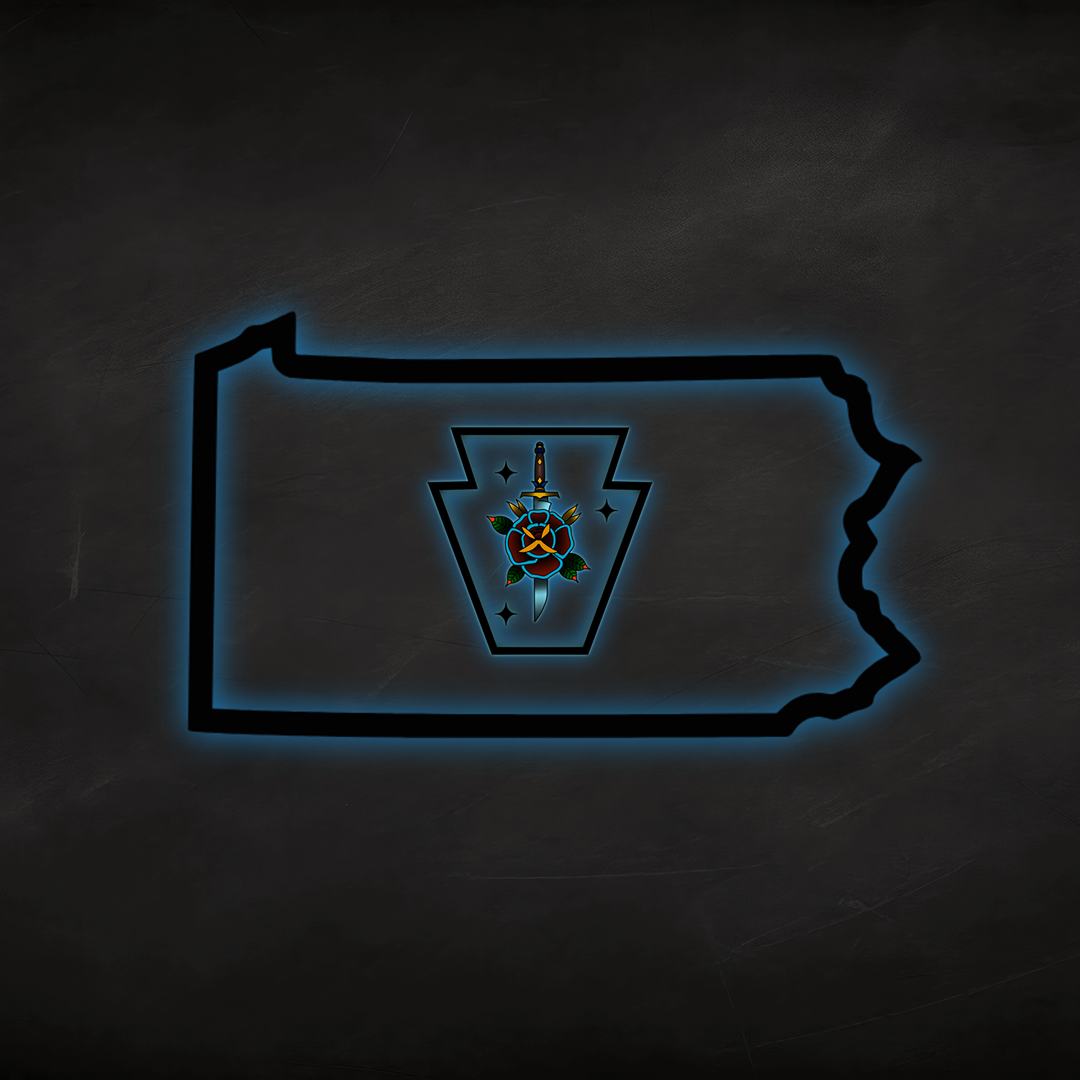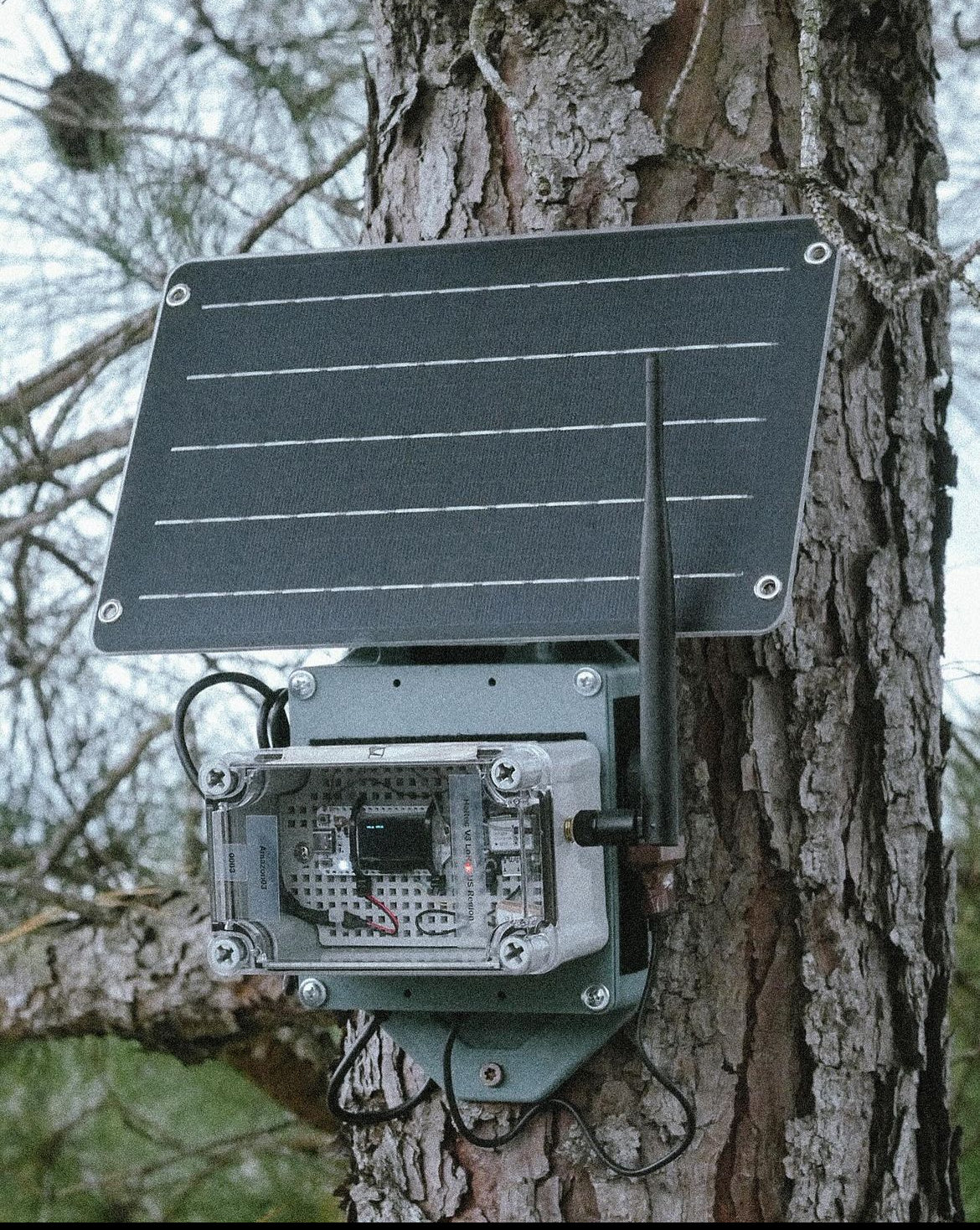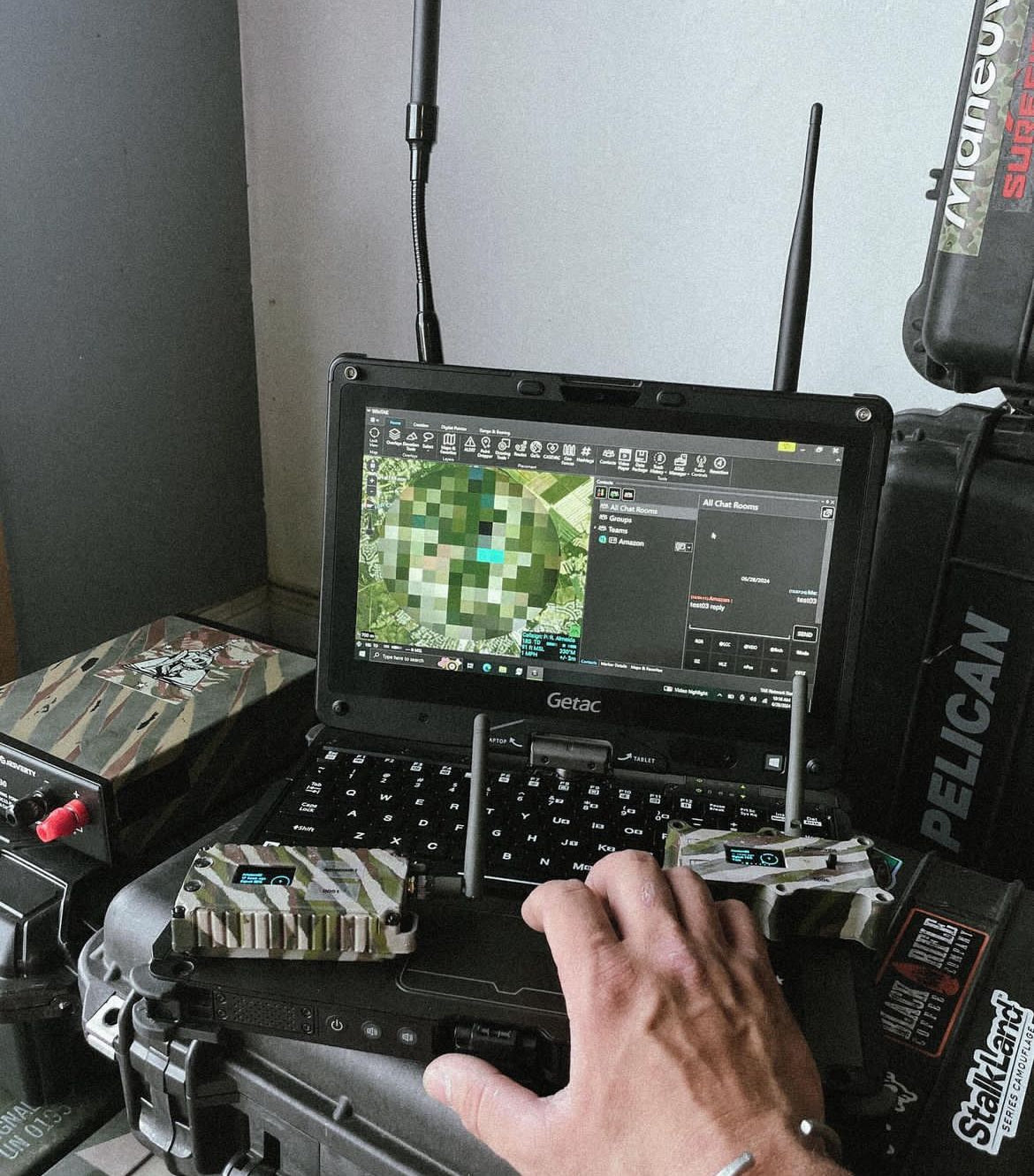Keystone Dynamic Solutions
Meshtastic Radio Employment Course - April 12th-13th - Pittsburgh P.A. Guest Instructor P.R. Alm.
Meshtastic Radio Employment Course - April 12th-13th - Pittsburgh P.A. Guest Instructor P.R. Alm.
14 in stock
Couldn't load pickup availability
Course Overview: Meshtastic LoRa Communication Systems
This hands-on course is designed to introduce participants to Meshtastic, a community-driven project that leverages LoRa (Long Range) technology to create off-grid, low-power, long-range communication networks. The course provides both theoretical knowledge and practical skills, focusing on how to build, deploy, and troubleshoot mesh networks using LoRa-enabled devices.
Course Focus
The course begins with a comprehensive overview of communication theory, including key concepts such as the electromagnetic spectrum, radio frequency (RF) bands, radio wave propagation, and modulation. Participants will also explore how radio waves travel, how to optimize antennas for range, and how various environmental factors (terrain, weather, interference) impact radio signal quality.
In addition to communication theory, the course dives into LoRa technology and its practical application in the Meshtastic ecosystem. Participants will learn about the capabilities and limitations of mesh networks, how nodes communicate with each other, and the role of repeaters and solar-powered devices in extending the reach of the network.
Key Topics Covered:
-
Communication Theory
- Electromagnetic Spectrum: Understanding different RF bands (UHF, VHF, etc.) and how they affect communication.
- Radio Wave Propagation: How signals travel through different terrains and atmospheres.
- Modulation Techniques: AM, FM, and digital modulation methods like FSK, PSK, and QAM.
- Antenna Theory: How antennas are designed and optimized for specific frequency ranges and environments.
-
Meshtastic & LoRa Technology
- LoRa Basics: Understanding the features and applications of LoRa radio technology.
- Meshtastic Project: The open-source platform that enables decentralized communication without the need for traditional cellular or internet infrastructure.
- Mesh Networking: How nodes, repeaters, and other devices interact to form a robust, self-healing network.
- GPS Integration: Sharing location data and utilizing GPS-enabled devices for real-time location tracking within the mesh.
-
Practical Application
- Building and Configuring LoRa Radios: Hands-on experience with development boards, soldering components, and configuring firmware.
- Firmware Flashing & Device Setup: Participants will learn how to flash the latest Meshtastic firmware and configure devices for use in their specific region (e.g., U.S. LoRa region: 902-928 MHz).
- Deploying and Troubleshooting: Practical skills for deploying a LoRa mesh network, optimizing device placement, and troubleshooting connectivity issues.
Course Objectives:
By the end of the course, participants will:
- Understand communication theory: Key concepts like RF bands, propagation, and modulation.
- Be able to assemble and configure LoRa radios for use in a Meshtastic mesh network.
- Learn to deploy and extend a mesh network in the field using LoRa technology.
- Gain the practical skills needed to troubleshoot connectivity issues and optimize the network for reliable, long-range communication.
- Understand how GPS integration works in a decentralized mesh network for sharing location-based data.
Required Gear:
-
Bluetooth-Enabled Device (Cellphone, Tablet, or Computer)
- Note: The Meshtastic app is free on iOS and Google Play, so participants need a Bluetooth-enabled device to interact with the Meshtastic system and configure their LoRa radios. This device will be used for setup, testing, and monitoring during both the classroom and field sessions.
Day 1: Classroom & Practical Application
Morning Session: Communication Theory Overview
9:00 AM – 9:30 AM: Course Introduction & Overview
- Brief overview of the course schedule.
- Goals: Understanding Meshtastic, LoRa technology, and communication theory.
- Expectations for Day 2 field application.
9:30 AM – 11:00 AM: Electromagnetic Spectrum & Radio Frequency Bands
- Introduction to electromagnetic spectrum: RF, microwave, and light.
- Overview of different RF bands (UHF, VHF, etc.) and their characteristics.
- Key concepts: Frequency, wavelength, range, and bandwidth.
- Hands-on Activity: Classifying RF bands in real-world scenarios (e.g., FM radio, Wi-Fi, GPS).
11:00 AM – 12:30 PM: Radio Wave Propagation & Modulation
- Detailed understanding of radio wave propagation: line of sight, diffraction, refraction, and reflection.
- Modulation techniques: AM, FM, PM, and digital modulation (FSK, PSK, QAM).
- Impact of terrain and weather on radio signals.
- Hands-on Activity: Simulate propagation scenarios using tools or models to visualize effects of terrain and obstacles.
12:30 PM – 1:30 PM: Lunch Break
Afternoon Session: Meshtastic LoRa Theory & Setup
1:30 PM – 3:00 PM: Introduction to Meshtastic and LoRa Technology
- Overview of the Meshtastic project: Origins, goals, and community-driven development.
- LoRa (Long Range Radio) technology: Features, benefits, and differences compared to other RF technologies.
- U.S. LoRa region (902-928 MHz): Frequency allocations and regulatory considerations.
- Interactive Discussion: Advantages of off-grid communication systems and Meshtastic's role in emergency scenarios, outdoor activities, and remote locations.
3:00 PM – 4:30 PM: Mesh Networks: Capabilities and Limitations
- Introduction to mesh networking: How nodes, repeaters, and solar-powered devices function.
- Network topology and optimization strategies.
- Limitations: Range, bandwidth, data rate, interference, and scalability.
- Activity: Use a mesh network simulator or software to explore and model a basic LoRa mesh network.
4:30 PM – 5:00 PM: Understanding LoRa Development Boards & Components
- Overview of the LoRa development board: Key components (ESP32, LoRa module, GPS, battery).
- Understanding the button functions, pins, and connections.
- Hands-On Session: Participants inspect development boards, identify key components, and familiarize themselves with each part.
- Step-by-Step Demonstration: Soldering a battery to the LoRa development board and attaching the GPS expansion board.
Day 2: Field Application – Using Meshtastic in the Real World
Morning Session: Field Setup & Deployment
8:00 AM – 8:30 AM: Field Overview & Objectives
- Brief overview of the day’s field activities.
- Discuss field conditions: Terrain, weather, and environmental factors that affect radio signal propagation.
- Understanding safety measures and troubleshooting techniques in the field.
8:30 AM – 10:00 AM: Preparing the LoRa Devices for Field Deployment
- Final checks on Meshtastic devices: Battery levels, antenna connection, GPS module.
- Setting up the LoRa radio for deployment: Firmware, region assignment, power settings.
- Activity: Participants connect their devices to the Meshtastic app to ensure proper configuration and connectivity.
10:00 AM – 11:30 AM: Deploying Devices and Establishing Communication Links
- Deploying devices in different locations to simulate real-world communication scenarios.
- Testing range, coverage, and establishing reliable communication links.
- Hands-On Exercise: Participants position their devices at varying distances and use the Meshtastic app to monitor the signal strength and data transmission.
11:30 AM – 1:00 PM: Mesh Network Setup in the Field
- Setting up repeaters or additional nodes to extend the mesh network coverage.
- Exploring the limits of the mesh network: Signal range, interference, and environmental factors.
- Practical Exercise: Expand the mesh network by strategically placing nodes and repeaters.
Afternoon Session: Real-World Communication Exercises
1:00 PM – 2:30 PM: GPS Integration & Satellite Communication
- Understanding the role of GPS in Meshtastic communication: How GPS data is transmitted between devices.
- Sending and receiving GPS coordinates and location-based messages.
- Activity: Participants use their GPS-enabled LoRa radios to share coordinates and send messages to other devices.
2:30 PM – 4:00 PM: Troubleshooting & Optimization in the Field
- Identifying common issues in the field: Signal loss, interference, and hardware failures.
- Troubleshooting techniques for diagnosing and fixing connectivity issues.
- Hands-On Troubleshooting: Participants work in groups to diagnose and resolve problems with their devices or network setup.
4:00 PM – 5:00 PM: Full Mesh Network Deployment & Final Test
- Participants work in teams to deploy a full mesh network, ensuring communication across various points in the field.
- Final Test: Each participant successfully establishes a communication link with a remote station or satellite.
- Activity: Test all functions: messaging, GPS sharing, node-to-node communication, and repeater deployment.
Post-Course Resources
- Access to course forum or online group for ongoing questions and experiences.
- Additional reading materials on RF communications, LoRa technology, and the Meshtastic project.
Share





